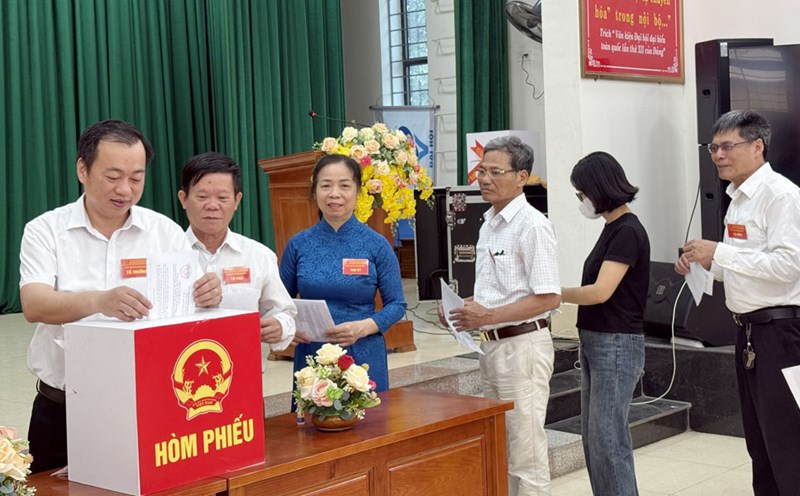Speaking at the 23rd session of the Provincial People's Council (Special Session) on April 28, Secretary of the Provincial Party Committee and Chairman of the People's Council of Binh Dinh province Ho Quoc Dung affirmed that in the coming time, "The secretaries and chairmen who are assigned to key communes and wards without completing their tasks and promoting local development must be replaced".
This is a very strong message from the leaders of Binh Dinh province, showing that the search for and arrangement of secretaries and chairmen for newly merged communes requires the highest requirement to do the work of the people.
This is to avoid the situation of "combining the whole village" in personnel work when arranging the apparatus - as long as there are enough positions, not leaving anyone disadvantaged.
That sometimes leads to the consequence: although the apparatus is compact in quantity, the operational efficiency is not high, many cadres " sit in enough positions" but do not really "work".
Therefore, the message and requirements for commune cadres of the Binh Dinh Provincial Secretary in the current context are very noteworthy.
A commune secretary or commune chairman must truly be a collective leader, exploiting local potential, improving people's lives, and effectively resolving people's legitimate aspirations.
The viewpoint of the commune secretary and chairman leaving the chair if they do not complete their tasks also emphasizes that the leadership position is no longer a "safe working position", but must be associated with the responsibility to explain and commit to the results and effectiveness of serving the people.
The Secretary of Binh Dinh Province set such a requirement as a way to promote the culture of "acting government", forcing each commune-level leader to truly commit, not passive, and not happy.
Hopefully, the requirements for commune secretaries and chairmen of the Chairman of Binh Dinh province do not stop at reminders, warnings or deterrents for cadres, but must be implemented substantially and strictly in practice.
In particular, Binh Dinh leaders need to design a strict, transparent monitoring mechanism and take drastic action. If changing cadres, there needs to be an objective and fair assessment process based on actual results, avoiding emotional or formal pressure.
Only then can the assessment of "completion or failure to complete the task" convince the cadres and be supported by the people. Good cadres will have more motivation to strive; Weak cadres will also "use their dresses" when they have to give way to more deserving people.
Hopefully, the view that if secretaries and chairmen are assigned to key communes and wards without completing their tasks and promoting local development, they must be replaced, not only a private matter of Binh Dinh but must become a common matter of all localities across the country.
Streamlining the apparatus is not only by reducing the number of units, but must be associated with innovation in human-using thinking. Commune secretaries and chairmen must now prioritize those who act, putting the interests of the people first!












